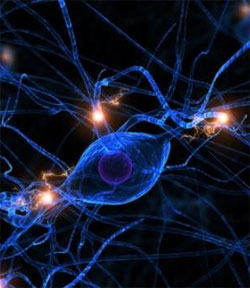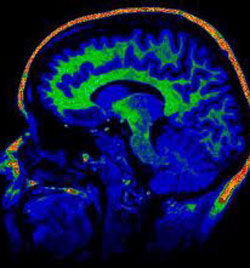How great and obvious is your beneficial accomplishing power? (I)
or
How to continuously transform ourselves through enthusiasm and unstoppable aspiration
by Cornelia Palii, yoga teacher
 Year after year, history seems to repeat itself for those of us (and there’s quite a few), who set out, on New Year’s eve, for example, to become better people, more loving, more efficient, maybe more spiritual or more successful in different fields, but who, although they’ve set their objectives, they tend to give them up quite fast, forgetting them like one forgets a fairy-like dream after a few days. European statistics show that 88% of the people usually give up what they have previously set to achieve… The situation is not very different in the case of those who have a certain spiritual practice, of any kind, those who realize that they could have done much more, when they draw a line, at some point in their life, with the information learned on the spiritual path they followed. For example, maybe some of them drew an note with an inspiring quotation, in the beginning of the year, and they’ve firmly set to develop some qualities, indicated on the note, or maybe they had lived an expanded state of consciousness, after which they managed to understand certain mysteries of the inner world, so they set out to relive that experience and deepen it more and more… but after a few months, sweet oblivion has brought their aspiration and the frenzy of the beginning to sleep, for most of them.
Year after year, history seems to repeat itself for those of us (and there’s quite a few), who set out, on New Year’s eve, for example, to become better people, more loving, more efficient, maybe more spiritual or more successful in different fields, but who, although they’ve set their objectives, they tend to give them up quite fast, forgetting them like one forgets a fairy-like dream after a few days. European statistics show that 88% of the people usually give up what they have previously set to achieve… The situation is not very different in the case of those who have a certain spiritual practice, of any kind, those who realize that they could have done much more, when they draw a line, at some point in their life, with the information learned on the spiritual path they followed. For example, maybe some of them drew an note with an inspiring quotation, in the beginning of the year, and they’ve firmly set to develop some qualities, indicated on the note, or maybe they had lived an expanded state of consciousness, after which they managed to understand certain mysteries of the inner world, so they set out to relive that experience and deepen it more and more… but after a few months, sweet oblivion has brought their aspiration and the frenzy of the beginning to sleep, for most of them.
Year after year, taking note of the partially respected promises, the hard cold summing-up of the real qualities, I began to wonder more and more often, exactly how big is my benefic accomplishing power, the efficiency I’ve gained on this path that guides my steps. And I ask you, who are reading these words right now, how big and alive is this power within you? And now, that you asked yourself this question, I invite you to go over these ideas that I’ve synthesized in order to evaluate the benefic accomplishing power, to figure out the steps needed in order to amplify this force and to find the most complete recipe which, by applying it we would gain this tremendous power, that is in fact at our disposal, but being so close to us, it often passes and perishes, unnoticed and unused.
Some folk traditions and customs contain encrypted keys of benefic accomplishing power
Before approaching this subject from the perspective of spirituality, I’ve focused my attention on folk traditions and customs that most of us grew up with, because the wisdom of our ancestors can be noticed even when you are on the brink of superstition and it can be of real help.
 The custom of lighting a number of candles on top of a cake, equal to the age of the person being celebrated, has its roots in ancient Greece. But in many ancient cultures and religions the smoke is considered to be the vehicle carrying the prayers to the gods, hence the tradition of making a wish before blowing the candles. And not in any way! But in such a manner that all the candles will go out in one blow, and the wish you made, you have to keep it a secret. And if you fulfill these conditions, then your wish shall come true – this is what we say to children on their birthdays. From this custom, considered to be a symbol of “the light of life”, we can already take note of two necessary conditions for fulfilling wishes and aspirations. From blowing out the candles in one single blow – the unitary effort to accomplish the goal we set; the state of unity of the being symbolized by the carefully dosed breath in order to blow out all the candles, even the last one – therefore, we have an aware employment in a state of unity of intention-thought-feeling-action, constantly and evenly maintained until reaching the goal. And then the necessity of maintaining the secret, because the premature act of describing an objective to the profane could easily unsettle it, in relation to the eventual opposition it might encounter.
The custom of lighting a number of candles on top of a cake, equal to the age of the person being celebrated, has its roots in ancient Greece. But in many ancient cultures and religions the smoke is considered to be the vehicle carrying the prayers to the gods, hence the tradition of making a wish before blowing the candles. And not in any way! But in such a manner that all the candles will go out in one blow, and the wish you made, you have to keep it a secret. And if you fulfill these conditions, then your wish shall come true – this is what we say to children on their birthdays. From this custom, considered to be a symbol of “the light of life”, we can already take note of two necessary conditions for fulfilling wishes and aspirations. From blowing out the candles in one single blow – the unitary effort to accomplish the goal we set; the state of unity of the being symbolized by the carefully dosed breath in order to blow out all the candles, even the last one – therefore, we have an aware employment in a state of unity of intention-thought-feeling-action, constantly and evenly maintained until reaching the goal. And then the necessity of maintaining the secret, because the premature act of describing an objective to the profane could easily unsettle it, in relation to the eventual opposition it might encounter.
Another well known custom correlated with making wishes and fulfilling them is that of thinking of a wish and not uttering it, in the exact moment when we see a meteor entering the atmosphere. It is said that having a clear picture of the wish in that grand moment, the wish will come true. This custom with ancestral origins is based upon the belief that the meteor indicates the ascension of a soul to God, and the inner formulation of the wish in the brief time it is visible, will make that soul to carry the wish with it, straight to God, asking Him to fulfill it. In this custom, we can also find the secret element again, the concealment of the proposed objective and faith in its fulfillment with divine help, thus opening the gates of mystery, of influence and help from beyond the known, terrestrial materiality from the fascinating Cosmos correlated with the infinite, the unfathomable, the Absolute and with the seductive depth of one’s own being.
 Help-request notes for accomplishing one’s own goals discreetly placed under wonder-making icons are of the same nature. They can also be placed around crosses on the tombs of sages or saints, having the conviction that the individual endeavors made for reaching the goal is radically sustained and guided from higher elevated planes, by divine forces. The custom of making a wish and then immediately throw a quarter in a well whose water is considered to have magical properties, or in a spring, symbolically indicates a toll or a sacrifice made for reaching the goal, the fact that in a fascinating harmony and universal balance based upon divine laws, everything comes exactly when due, according to one’s merits, no sooner, no later, and that at a certain level, everything is evened out: you have a more refined and elevated state of consciousness, giving up what is inferior; you step ahead, renounces the traces you’ve left behind you and not clinging to them; you expand your consciousness paying the insignificant toll of contraction and confinement. The sacred and sanctifying value of water should never be minimized, because it becomes the bearer of the wish, towards its fulfillment. And last but not least, we should mention the custom of setting a very clear goal in the beginning of a new year or during phases of new moon – a token of maintaining the energy of the beginning, of that divine, ascendant, primary impulse, until reaching the goal.
Help-request notes for accomplishing one’s own goals discreetly placed under wonder-making icons are of the same nature. They can also be placed around crosses on the tombs of sages or saints, having the conviction that the individual endeavors made for reaching the goal is radically sustained and guided from higher elevated planes, by divine forces. The custom of making a wish and then immediately throw a quarter in a well whose water is considered to have magical properties, or in a spring, symbolically indicates a toll or a sacrifice made for reaching the goal, the fact that in a fascinating harmony and universal balance based upon divine laws, everything comes exactly when due, according to one’s merits, no sooner, no later, and that at a certain level, everything is evened out: you have a more refined and elevated state of consciousness, giving up what is inferior; you step ahead, renounces the traces you’ve left behind you and not clinging to them; you expand your consciousness paying the insignificant toll of contraction and confinement. The sacred and sanctifying value of water should never be minimized, because it becomes the bearer of the wish, towards its fulfillment. And last but not least, we should mention the custom of setting a very clear goal in the beginning of a new year or during phases of new moon – a token of maintaining the energy of the beginning, of that divine, ascendant, primary impulse, until reaching the goal.
What neuroscience tells us
Enumerating only a few known examples from the popular tradition, we’ve already extracted a series of veritable keys of amplifying the benefic accomplishing power. But let us see what is the opinion of nowadays science regarding this subject.
 British psychologist Richard Wiseman, head of the psychology department of Hertfordshire University, conducted a study on accomplishing individual, concrete objectives, suggested by 3000 adult persons. At the beginning of the experiment, 52% of the subjects were convinced that they will succeed in reaching their goal. Twelve months later, at the end of the test duration, a mere 12% of the 3000 had accomplished what they had set to accomplish, 68% of them having given up, at some point or another, that year. How can we explain this reduced success percentage? Mathias Pessiglione, a well renowned researcher from the Brain and Spine Institute, explains this fact based on the example of the irresistible desire of eating some chocolate when this habit is already present in the subject. He states that our brain is simply not conceived to be able to fight habits, because caving in front of a piece of chocolate causes a short term pleasure due to the release of dopamine which conditions us to want even more chocolate. “This neurotransmitter strengthens the connection between two areas of the brain: the pre-frontal cortex, involved in behavior and the striatum, responsible for memorizing routine tasks. The dopamine strengthens this bond, bit by bit, each time.” That means, with each old habit of ours, it is consolidated, more and more, making the assimilation of new habits, customs, attitudes, benefic behaviors even harder, habits which would rapidly lead us towards the objective we’ve set, such as, the habit of never eating sugar, or meat, that of cultivating mental hygiene, not allowing negative thoughts to make a living inside our minds, that of excluding low-resonance words and expressions from our active vocabulary, that of seeing the divine nature in us and in others, no matter what the situation is, of thanking God at least seven times a day, of praying every day, of not acting under a moment’s impulse before exercising conscious will, etc.
British psychologist Richard Wiseman, head of the psychology department of Hertfordshire University, conducted a study on accomplishing individual, concrete objectives, suggested by 3000 adult persons. At the beginning of the experiment, 52% of the subjects were convinced that they will succeed in reaching their goal. Twelve months later, at the end of the test duration, a mere 12% of the 3000 had accomplished what they had set to accomplish, 68% of them having given up, at some point or another, that year. How can we explain this reduced success percentage? Mathias Pessiglione, a well renowned researcher from the Brain and Spine Institute, explains this fact based on the example of the irresistible desire of eating some chocolate when this habit is already present in the subject. He states that our brain is simply not conceived to be able to fight habits, because caving in front of a piece of chocolate causes a short term pleasure due to the release of dopamine which conditions us to want even more chocolate. “This neurotransmitter strengthens the connection between two areas of the brain: the pre-frontal cortex, involved in behavior and the striatum, responsible for memorizing routine tasks. The dopamine strengthens this bond, bit by bit, each time.” That means, with each old habit of ours, it is consolidated, more and more, making the assimilation of new habits, customs, attitudes, benefic behaviors even harder, habits which would rapidly lead us towards the objective we’ve set, such as, the habit of never eating sugar, or meat, that of cultivating mental hygiene, not allowing negative thoughts to make a living inside our minds, that of excluding low-resonance words and expressions from our active vocabulary, that of seeing the divine nature in us and in others, no matter what the situation is, of thanking God at least seven times a day, of praying every day, of not acting under a moment’s impulse before exercising conscious will, etc.
An activity becomes a habit if repeated for 68 consecutive days
 Dr. Phillippa Lally went deeper into the study of habit transformation. She tested the utility of forming benefactor habits for effectively achieving the transformation of the subjects, focusing, in an early phase, on losing weight, in the case of those who suffered from obesity. A rigorous study, monitored on a 6 month duration, compared the results of losing weight by changing habits with those of a control group who didn’t undergo the same “treatment”. The results of the first group were remarkable. The recommended behavior patterns, associated to some new, healthy habits, gradually became automatic. Dr. Lally then extended her domain of studied habits, including, next to the subjects’ food habits, behavior patterns from the performing of various actions. The result of this study showed the fact that a single advice can give birth to a habit, in some people’s case, while other subjects would make constant efforts for longer periods of time to give up certain habits and/or replace them with new ones, which were benefic and opposing their current ones. She developed a methodology of the process of forming and modelling habits, coming to the conclusion that a behavior needs to be repeated a certain number of days in a row in order for it to become a habit, to naturally integrate it into the subjects’ behavior. Dr. Lally, together with her colleagues from The University College in London have concluded that an activity becomes a habit if repeated for 68 consecutive days! Consequently, we should have the benefic habits corresponding to the states or traits that we set out to achieve on New Year’s eve… at the beginning of March!
Dr. Phillippa Lally went deeper into the study of habit transformation. She tested the utility of forming benefactor habits for effectively achieving the transformation of the subjects, focusing, in an early phase, on losing weight, in the case of those who suffered from obesity. A rigorous study, monitored on a 6 month duration, compared the results of losing weight by changing habits with those of a control group who didn’t undergo the same “treatment”. The results of the first group were remarkable. The recommended behavior patterns, associated to some new, healthy habits, gradually became automatic. Dr. Lally then extended her domain of studied habits, including, next to the subjects’ food habits, behavior patterns from the performing of various actions. The result of this study showed the fact that a single advice can give birth to a habit, in some people’s case, while other subjects would make constant efforts for longer periods of time to give up certain habits and/or replace them with new ones, which were benefic and opposing their current ones. She developed a methodology of the process of forming and modelling habits, coming to the conclusion that a behavior needs to be repeated a certain number of days in a row in order for it to become a habit, to naturally integrate it into the subjects’ behavior. Dr. Lally, together with her colleagues from The University College in London have concluded that an activity becomes a habit if repeated for 68 consecutive days! Consequently, we should have the benefic habits corresponding to the states or traits that we set out to achieve on New Year’s eve… at the beginning of March!
Creative imagination and visualization of the final result helps us resist temptation
 Researchers went even further, studying the effects of the immediate results in comparison to future rewards for current actions. Matthias Pessiglione underlines here the extraordinary role of the hippocampus, that area of the brain which is involved in the process of memorizing, visualization and imagination. Immediate gratification can be most often perceived through the senses while future results require a projection effort, an effort of visualizing one’s own being in the chosen hypostasis, as already having achieved that. The aforementioned neuro-scientist subjected a few volunteers to a set of written questions, next to a set of suggestive images during which they were subjected to an investigation done through magnetic resonance (MRI). Being asked, for example, if they wanted to eat a bag of chips in that moment, or if they preferred to eat it in a month, during a cruise, it was noticed that the subjects with more patience are the ones whose hippocampus is more active. These are the ones who make a greater effort in visualization and imagination. The conclusion is that in order to win over an immediate temptation you need to visualize the result, because otherwise, when the conditions become difficult, you will fall right back into the initial state, abandoning your own resolutions, because the necessary inner transformation was not yet based on a solid foundation.
Researchers went even further, studying the effects of the immediate results in comparison to future rewards for current actions. Matthias Pessiglione underlines here the extraordinary role of the hippocampus, that area of the brain which is involved in the process of memorizing, visualization and imagination. Immediate gratification can be most often perceived through the senses while future results require a projection effort, an effort of visualizing one’s own being in the chosen hypostasis, as already having achieved that. The aforementioned neuro-scientist subjected a few volunteers to a set of written questions, next to a set of suggestive images during which they were subjected to an investigation done through magnetic resonance (MRI). Being asked, for example, if they wanted to eat a bag of chips in that moment, or if they preferred to eat it in a month, during a cruise, it was noticed that the subjects with more patience are the ones whose hippocampus is more active. These are the ones who make a greater effort in visualization and imagination. The conclusion is that in order to win over an immediate temptation you need to visualize the result, because otherwise, when the conditions become difficult, you will fall right back into the initial state, abandoning your own resolutions, because the necessary inner transformation was not yet based on a solid foundation.
One of the German televisions is broadcasting these days a commercial of the Kinder eggs, an advertisement presenting the reactions of some children who are very eager to discover the surprise in the egg, who are told, in the exact moment when they want to open the egg, that they will get a new egg if they choose not to open the first one until the person who offered them the first egg re-enters the room. Beyond the harmful consumerist aspect cultivated through such an attitude, the reactions of the children are rather funny and obviously genuine, masterfully expressing the way children spontaneously find ways to win over the temptation to open the egg. Some of them begin to play with it without opening it, giving it a new utility (for example, turning it into a makeshift plane) or they begin a new imaginative game in which they pay attention to something else, in order to summon the patience necessary to win the second reward.
Thus, every time there is a compulsion, such as the desire to come back to your old harmful habit, you must first define it, become aware of it, change your state of mind by focusing on another action or on a benefic state, opposing the first one, a state we should pay more and more attention to, in our life.

Define your priorities
The prefrontal cortex, active in states of spontaneity, is also involved in processes of mental concentration, being correlated with short term memory. An overburdening of this area of the brain can cause lack of self control, according to the neuroscientists. Dr. Fritz-Albert Popp discovered, in 1970, that DNA stores photons. He noticed that all life forms absorbs photons into their DNA, even more, there are light exchange phenomena between organisms. From his studies, he drew the conclusion that these photons were connected with the degree of health of the organism, because in certain parts of the body that were weakened or ill, the level of light stored by the DNA was significantly lower, even absent in some cases. Popp noticed the fact that stress is an important influence on tissues, it can even be more toxic than exposure to substances with a certain degree of toxicity, such as cigarettes. Thus, the overburdening of the prefrontal cortex, in absence of a harmonious expansion of the consciousness – for it to be able to incorporate more aspects and goals – leads to emission of photons at the level of the stressed area and affecting this area, which can express under different forms, burn-out syndrome being one of them. At the level of the regular human being, when you set out on more goals, simultaneously, pressure rises and you can fail to achieve them, so it is better if you make a priority list so that one goal – the most important one – to be the main goal. You should start with the main goal and upon reaching it, go to the next one, while also practicing the expansion of consciousness. On the other hand, practicing consciousness expansion, for example through yogi meditation, together with keeping yourself at a supra-mental level, cause an exceptional energizing at the level of the frontal cortex, which is also closely related to the perception of God the Father’ intentions.
We recommend you also read here the second part
yogaesoteric
July 2014
Also available in:
 Română
Română
